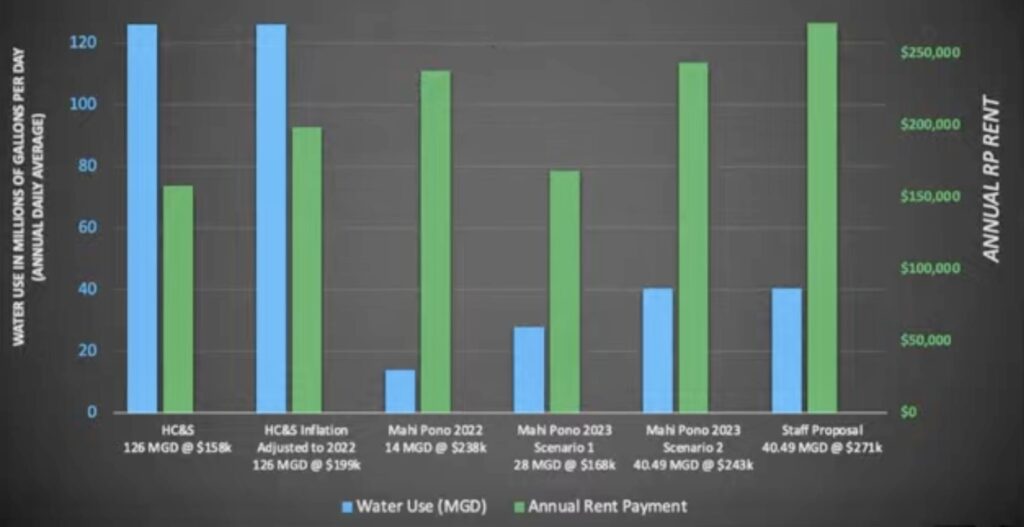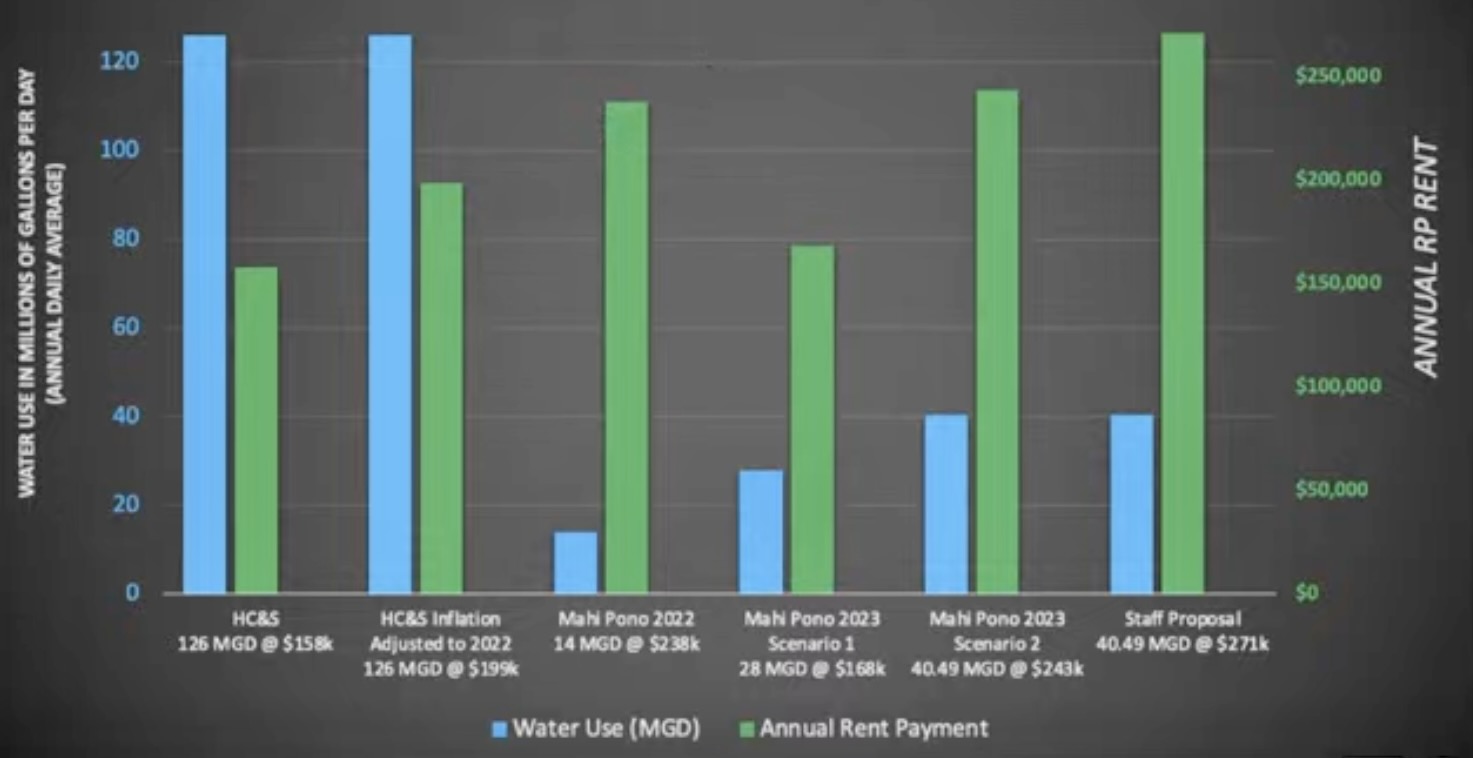On December 9, the Land Board backtracked on its November 10 decision regarding the continuation of four revocable water permits to Alexander & Baldwin, Inc., and East Maui Irrigation Co., which A&B co-owns with Mahi Pono, LLC.
Mahi Pono grows diversified crops on several thousand acres of former sugarcane lands in Central Maui and plans to expand its agricultural operations. The company convinced the Land Board in November to depart from the permit rents proposed by the Department of Land and Natural Resources’ Land Division and instead base them on how much diverted East Maui water Mahi Pono used.
The Land Division had proposed a total annual rent of $271,230.24 for the four permits. Under the permits, A&B and EMI would be able to divert up to 35 million gallons of water a day.
Grant Nakama, Mahi Pono’s vice president of operations, said he expected that by the end of 2023, 11,000 acres of plants would be in the ground.
He testified that the company’s water needs have more than tripled since January 2021. If the permit rents were based on the amount of water used, he said, that would provide an incentive to Mahi Pono to conserve water.
The Land Board agreed and voted to approve the permits with rent being based on usage. The amount would be calculated monthly.
When Land Division staff had a chance to crunch the numbers, however, it wasn’t happy. It found that based on A&B’s and EMI’s current diversion of 15 mgd, the total 2023 rent for the four permits would be only $90,270, according to the division’s December 9 report to the board.
The division also was skeptical that the rate approved by the board would result in any such incentive to conserve water, “since the rent that would be actually owed is significantly lower than even the current total rent for 2022 of $19,863.47 per month or $238,361.64 per year, without any adjustment for 2023,” it stated.
It added that the rent also failed to take into account A&B’s and EMI’s use of the thousands of acres of forest reserve lands that EMI’s diversion system runs through and are included in the permits.
At the Land Board’s December 9 meeting, land agent Blue Ka‘anehe noted that the rent as earlier approved reduces the amount of money available to pay staff who work on the permits, which she said require more staff resources than any other revocable permit.
She asked that the Land Board amend the rent to be what the division had originally proposed.
Nakama argued that the rent should remain tied to the volume of water used. He said a flat fee was good for sugarcane, which required a consistently large amount of water. In contrast, the crops on Mahi Pono’s lands use less water and the amount varies throughout the year.
Nakama presented a graph showing that when the water was still going to Hawaiian Commercial & Sugar, Mahi Pono’s predecessor on the lands, A&B and EMI were paying $158,000 for the use of 126 mgd. But under the Land Division’s proposed rent the permits, the companies would be paying $271,000 for only 40.49 mgd, the graph showed.
David Kimo Frankel, representing the Sierra Club of Hawai‘i, supported the Land Division’s recommendation. He pointed out that Central O‘ahu farmers pay more than ten times what A&B and EMI pay for water.

“Mr. Nakama can present all the charts he wants. … The rent should be 10 times higher, not cut in half how you voted last month,” Frankel said.
Then-Land Board chair Suzanne Case took responsibility for saying in November that calculating the rent based on water use sounded like a good idea. “We didn’t have a chance to analyze it. … It’s too much of a new idea to totally redo the rent,” she said.
The board unanimously voted to rescind its November decision on the rent and instead approve the 2023 rents as recommended by staff.
Contested Case Denied
After the vote on rent, the board took up the Land Division’s recommendation to deny the Sierra Club’s written request for a contested case hearing on the permit approvals.
Among other things, Frankel had argued back in November that the board was again allowing the diversion of too much water, as more than 22.7 percent of what A&B and EMI diverted was not used in a reasonable, beneficial manner.
The board denied his oral request for a contested case and approved the permits.
After the Sierra Club followed up with a written petition, the Land Division recommended it be denied. Despite Frankel’s argument at the December meeting that new evidence warranted a contested case, the board voted to deny the petition.
By then, Frankel had already filed an appeal on November 29 in the Environ- mental Court.
— Teresa Dawson
(This article has been amended to clarify that the Land Board did not revisit the decision to issue the permits. It only revisited its decision on the rent.)


Leave a Reply